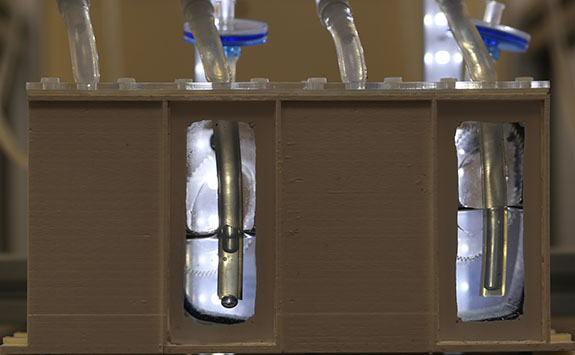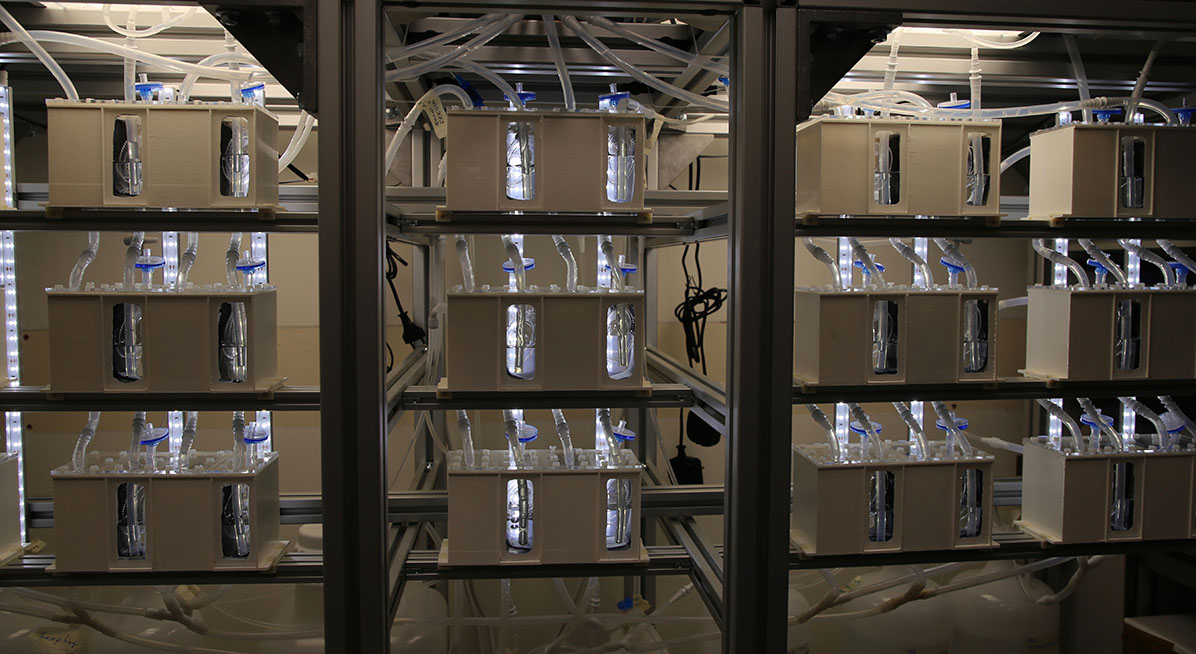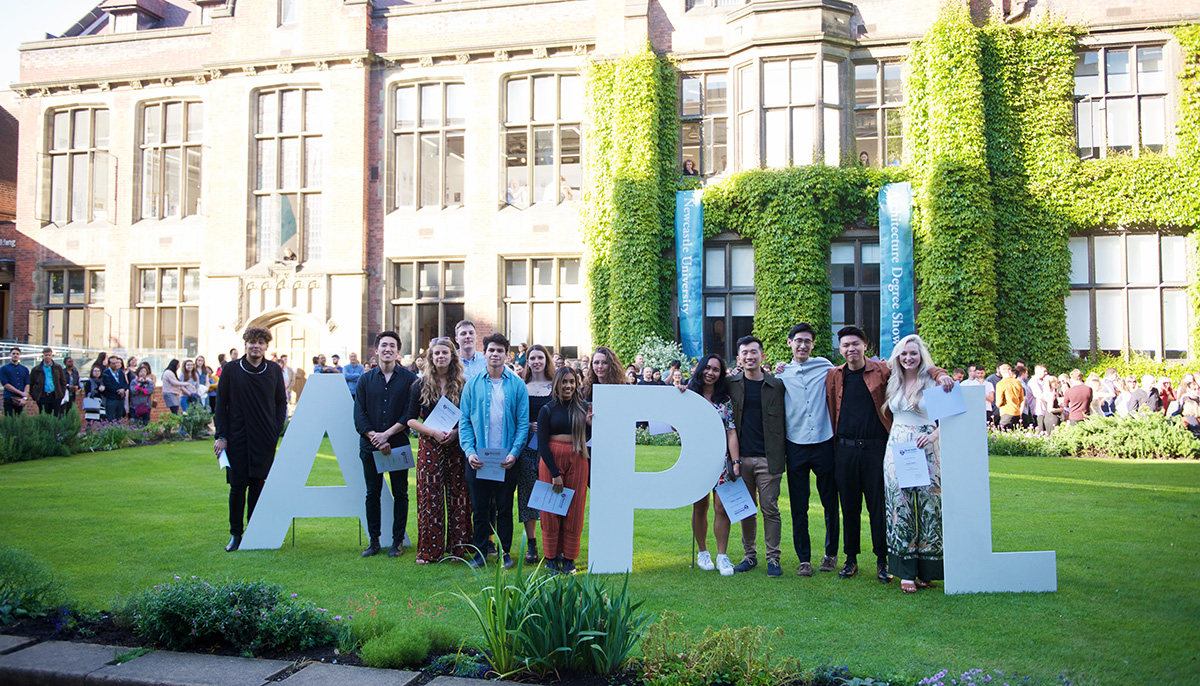Living Bricks
If you thought having a virtual assistance in your home makes life easier, how about having a home that can not only make electricity and clean water, but can also keep you informed and offset the environmental impact?
The ALICE prototype, funded by UK Research and Innovation, Horizon 2020 and the EU’s Innovation Awards, brings together several ground-breaking threads of bio-digital research. The ALICE consortium comprises Newcastle University, the University of the West of England and Translating Nature.
Together it creates a living, breathing, energy-generating microbial system that can simultaneously supply power to your home and talk to you through augmented reality to tell you how productive and ‘happy’ it is.

ALICE has the potential to permanently wean humanity off fossil-fuels
How it works
The base of the prototype is a wall of “living bricks” which can form entire walls and structures. These living bricks contain microbes that use liquid waste to generate energy, which can then be turned into electricity and clean water. But it’s not that simple…
In order to know how productive the microbes are, ALICE uses biosensors that record data produced by the microbial electrons; ALICE then fuses biological and digital technologies to converse with the microbes and see how happy they are and tell us whether they need to be fed or warmed to generate more bioelectricity.
Self-powered by the microbial fuel cells inside each brick, ALICE can not only be used as a source of household energy but can also transform domestic liquid wastes into clean water fit for reuse.
A digital overlay of the information gathered from ALICE’s conversations with the microbial life in each brick, is then displayed back to the household using Augmented Reality.
Professor Rachel Armstrong, Coordinator on the ALICE project from Newcastle University said:
“ALICE has the potential to permanently wean humanity off fossil-fuels.”
“This project is part of a range of prototypes that are re-designing our buildings and reshaping the future of architecture into a two-way conversation with nature; using microbes is our way of counteracting the impacts of our increasingly hostile planetary systems. I hope this research leads to a more sustainable future for all”
Professor Armstrong gave a panel session talk on her work, including ALICE on Monday 8 February 2021, at this year’s American Association for the Advancement of Science (AAAS) annual meeting which was held online.
Professor Dame Lynn Gladden, Executive Chair of the Engineering and Physical Sciences Research Council (EPSRC), part of UKRI, said:
“This is a really revolutionary project which could change our residential environment and have a significant impact on how we power our homes in the future. EPSRC is proud to have funded the early investments that led to this work.”
“The results published today are a great example of a collaborative effort in tackling a key issue of the 21st century and should be celebrated as both an achievement for the future of sustainable living and an accomplishment of the science intrinsic to engineering biology.”

